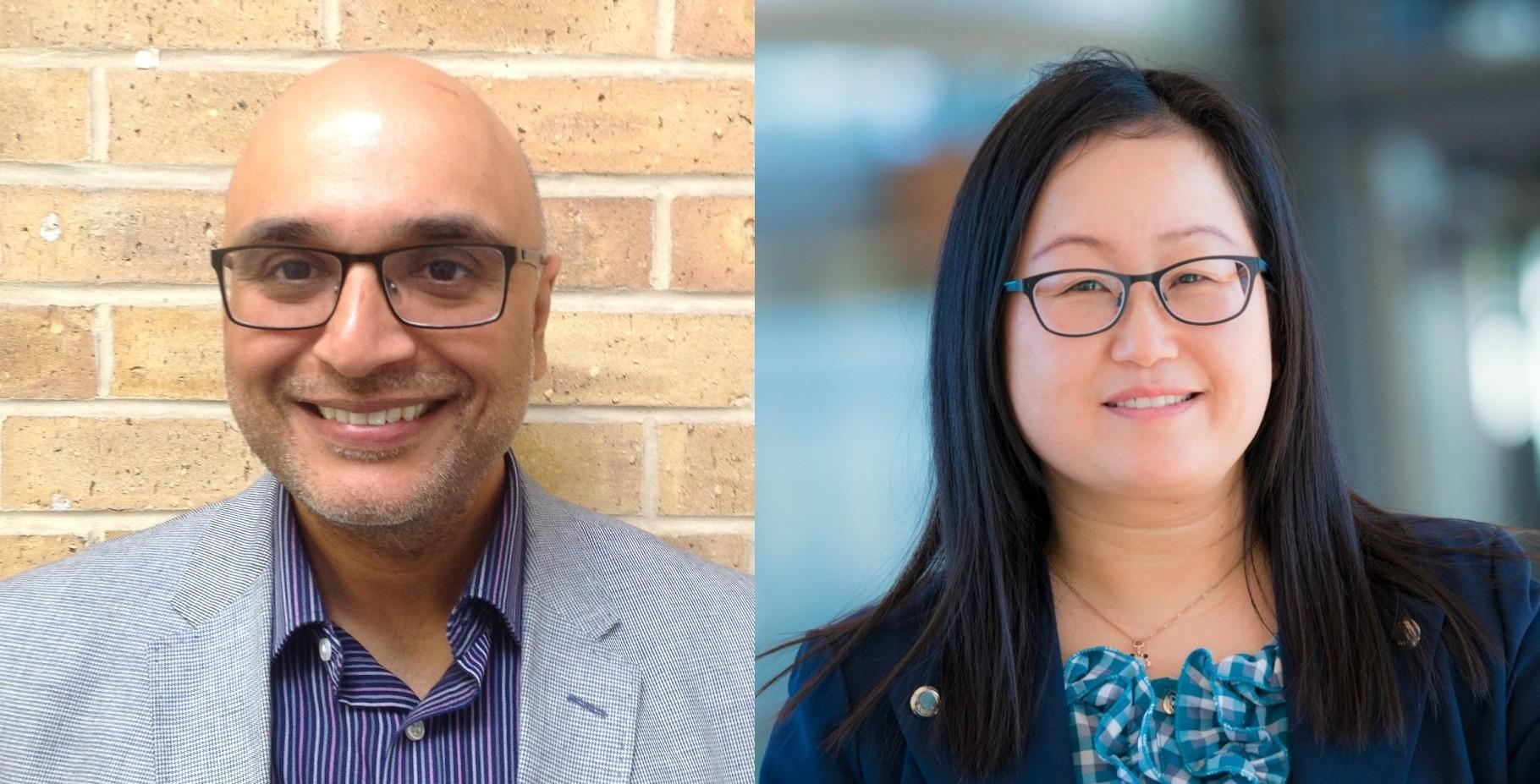Optical imaging and battery technology focus for Laureates

Professor Kishan Dholakia (left) and Professor Zaiping Guo
Two University of Adelaide scientists have been awarded prestigious Australian Laureate Fellowships by the Australian Research Council. Professor Kishan Dholakia will undertake research into wide-field optical imaging and Professor Zaiping Guo will work on pushing the boundaries of battery technology.
Professor Dholakia, from the School of Biological Sciences, is an expert in physics and biophysics.
“My Laureate Fellowship aims to transform wide-field optical imaging through a new ‘intelligent’ microscopy able to capture 3D volumetric images,” said Professor Dholakia.
“While optical methods for imaging are used extensively, achieving wide-field imaging through scattering media with high resolution and depth is a major challenge, mainly due to the limited penetration depth of light.”
Professor Dholakia will combine innovative ways of shaping light in both space and time with computational analysis in a holistic way to extract images from deep within sample tissue at extraordinary levels of detail.
Major benefits of his research range from the next-generation tools for enhanced discovery of biological and physical materials, to new Australian start-ups for new imaging and microscopy devices.
During her Laureate Fellowship Professor Guo, who is from the School of Chemical Engineering and Advanced Materials, will develop safe, high-energy, high-power-density batteries for electric vehicles and grid-scale applications.
“High density batteries hold great promise for efficiently storing energy from natural resources such as sunlight and wind,” she said.
“The key to improving battery performance and realising high energy/power density batteries lies in the physicochemical interactions at the electrode-electrolyte interface.
“My work will provide a comprehensive understanding of this tiny, but critical, interfacial zone, which will allow optimisation of electrode/electrolyte of batteries and their electrochemical performance, leading to improvements in battery design.
“Batteries of the future will have higher energy density, improved stability and safety, longer life cycles, and lower cost.”
Professor Guo’s work will help to revolutionise battery technology, reduce Australia’s demand for fossil fuels, cut greenhouse gas emissions, and position Australia as a global leader in the critical transition to a decarbonised economy.
The Australian Laureate Fellowships scheme supports groundbreaking, internationally competitive basic and applied research.
“I congratulate Professor Dholakia and Professor Guo on being awarded Laureate Fellowships by the Australian Research Council,” said Professor Anton Middelberg, Deputy Vice-Chancellor (Research) at the University of Adelaide.
“Ground-breaking, transformative research such as theirs, undertaken at the University of Adelaide, will help tackle some of the greatest challenges facing society.”
The Australian Laureate Fellowships scheme has a range of objectives including forging strong links among researchers, industry and other research end-users as part of their work, and focusing on priority areas identified by the Australian government.
Media Contact:
Crispin Savage, Senior Media and Communications Officer, University of Adelaide. Mobile: +61 (0)481 912 465, Email: crispin.savage@adelaide.edu.au
